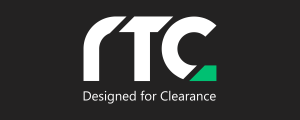- E-Invoicing Mandate Overview: Germany is transitioning to mandatory Business-to-Business (B2B) e-invoicing starting January 1, 2025, with full implementation by January 1, 2028. This shift aims to enhance transparency and efficiency in financial transactions and tax reporting, requiring businesses to adapt their invoicing processes to comply with structured e-invoice formats like XRechnung and ZUGFeRD.
- Compliance Responsibilities and Risks: Businesses must ensure the authenticity, integrity, and legibility of their invoices as compliance will be audited post-submission. Non-compliance could lead to invoice rejections, delayed payments, scrutiny from tax authorities, and substantial fines, with the added risk of losing the ability to recover input VAT if electronic invoices are not used.
- Strategic Planning Imperatives: Organizations should assess their current systems for e-invoice capabilities, invest in compliant solutions, establish robust processes for handling exceptions, and educate relevant teams on the new requirements to mitigate compliance risks and leverage this regulatory change for improved operational efficiency.
Source: RTCsuite
Click on the logo to visit the website
- See also
- Join the Linkedin Group on Global E-Invoicing/E-Reporting/SAF-T Developments, click HERE















